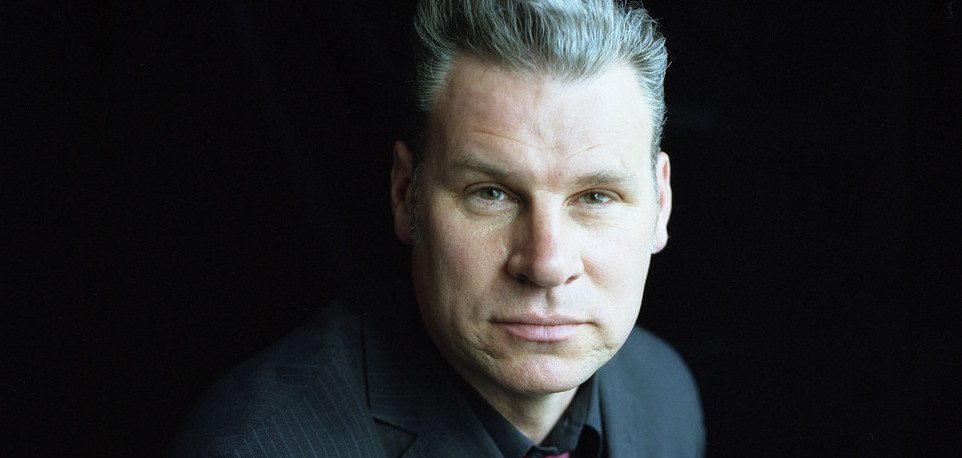In Conversation with Mark Kermode: Student journalism, the learning curve and optimism
On 27 November Warwick Arts Centre was host to a very special guest. The man of many reviews on Kermode and Mayo’s BBC Radio 5 Live Film Review Show, the double-bassist in skiffle band The Dodge Brothers, Mr Horror Fan himself and the nation’s favourite film critic: Mark Kermode.
Kermode may have a reputation for his more famous ‘ranty’ reviews (see Sex and the City 2) but his articles and broadcasts on new film releases are consistently thoughtful, intelligent and fair. To regular listeners of the Kermode and Mayo podcast, Kermode is affectionately known as ‘the good Doctor’ and continued dedication to the show is referred to as ‘being a member of the Church of Wittertainment’. I promise we’re not a cult.
On entering Mark’s dressing room I had no other way to express my awe than to announce “this is my Linda Blair moment”, referring to his well-documented star struck reaction to meeting the actress from The Exorcist. He may be only six foot but he cuts a figure in his sharp suit complete with double bass pin and, of course, that famous voice. He laughed and immediately put me at ease. Ready to appear ‘Live in 3D’ before a sold-out audience, he first took some time out to chat to The Boar about all things film. Meeting my inspiration for studying film, in flesh and blood, was the peak of this year.
I kicked off by asking Mark how he got started in film journalism and, encouragingly for us students, it all began when he was at university. “I wrote some gig reviews for The Mancunion the student newspaper in Manchester and the first film reviews I wrote were for City Life magazine which was a local listings magazine… By the time I finished doing my university stuff I had a portfolio of printed work”.
The best thing about online is everyone has access to it; the worst thing about it is everyone has access to it.
Student media may have been the spring board to his further career but Mark stressed the difference between his experience and the world that today’s students will be entering. “Because everything is online nowadays it is much more difficult to do [what I did]. The best thing about online is everyone has access to it; the worst thing about it is everyone has access to it. You’re trying to compete with so many more voices. If you want to [work in journalism], the best thing to do is get out there and start doing it. Nobody wants to be the first person to publish you… and so if you can get through that, in whatever way at all, it will get you over the first hurdle”.
I was keen to know if this means pestering people in high places. “Don’t take no for an answer”, he confirmed, “you have to get to the point that it’s easier for them to give you work that to keep telling you to go away”.
Just because something makes you profoundly uncomfortable doesn’t mean that you’re not a fan
When I asked Mark for one film that he’s changed his opinion of since his initial review his immediate reply was Blue Velvet. “It was one of the first things I reviewed and I hated it and now I just think it’s a masterpiece”. I wondered how such a dramatic change of heart is possible and Mark explained that there is a learning curve that comes with the job: “the more you [review film], the more you realise that just because something makes you profoundly uncomfortable doesn’t mean that you’re not a fan”.
To close the conversation, I simply asked “Is everything going to be okay?” Mark once responded to a distressed listener’s email on his podcast with ‘everything is going to be okay’ and ever since he has been inundated with fan letters requesting his reassurance on all matters; most recently focused on politics across the pond.
“I’m fundamentally optimistic. I genuinely believe that people are good and films can be brilliant” he said, admitting 2016 has been a tough year. “For right or wrong, I do think that things will get better”.


Comments